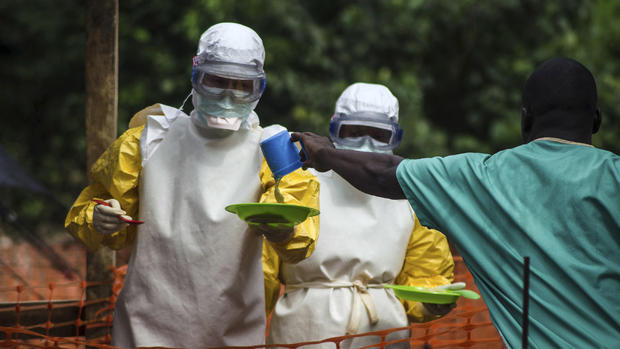Ebola: What are the symptoms?
Public fear of the Ebola virus has begun to spread far beyond West Africa, where it has taken the lives of more than 900 people. Medical institutions in the U.S. and beyond are on alert to identify and immediately isolate any patient who presents with symptoms that may be related to the illness.
What exactly are doctors looking for when they suspect a patient may have the Ebola virus?
Ebola, which has a mortality rate between 60 and 96 percent, is a systemic virus, meaning it impacts all organs that control various functions in the body. But before it attacks the gastrointestinal, respiratory, vascular, muscular, neurological and immune systems, Ebola starts off looking a lot like the flu.
At its onset, a patient may experience fatigue, fever, headache, sore throat and pain in the joints and muscles. The initial symptoms are so common that the Centers for Disease Control and Prevention says cases are often misdiagnosed.
As the virus begins to take hold of the body, gastrointestinal illness, such as abdominal pain, vomiting, diarrhea and loss of appetite will occur. A patient may have labored breathing, trouble swallowing and chest pain. A rash, excessive bruising and bloody blisters of the skin are among the visual manifestations of the infection.
A person in the advanced stages of an acute Ebola infection will begin to have internal bleeding -- what's known as viral hemorrhagic fever. Ebola, and its cousin the Marburg virus, can cause hemorrhaging of multiple organs, as well as external bleeding from various orifices of the body including the ears and eyes. While the excessive bleeding certainly elicits more horror than any other symptoms, the bleeding itself is rarely fatal and not every patient develops it.
People die from complications associated with the virus, often shock due to leaking of blood vessels. Other factors may be multiple organ failure, low blood pressure, jaundice, delirium, seizures and coma.
Health officials say it is not yet understood why some patients manage to recover, while so many others die.
As a result of the current outbreak, researchers have stepped up efforts to develop a vaccine and experimental drugs to combat Ebola infection. But in the meantime, doctors must rely on supportive therapies to manage symptoms and complications while the disease runs its course. These measures may include giving a patient intravenous fluids and electrolytes for dehydration, maintaining blood pressure, giving transfusions to replace blood lost due to hemorrhaging, as well as treating any subsequent infections that result from the virus.
Dr. Bruce Ribner, who specializes in infectious diseases at Emory University School of Medicine and is spearheading care for the two Americans who contracted the virus while serving as volunteers in the region, said Friday that his team would give both patients a shot at survival by providing care to alleviate acute symptoms. "We depend of the body's defense to control the virus. We just have to keep the patient alive long enough, in order to survive the infection," he said.
